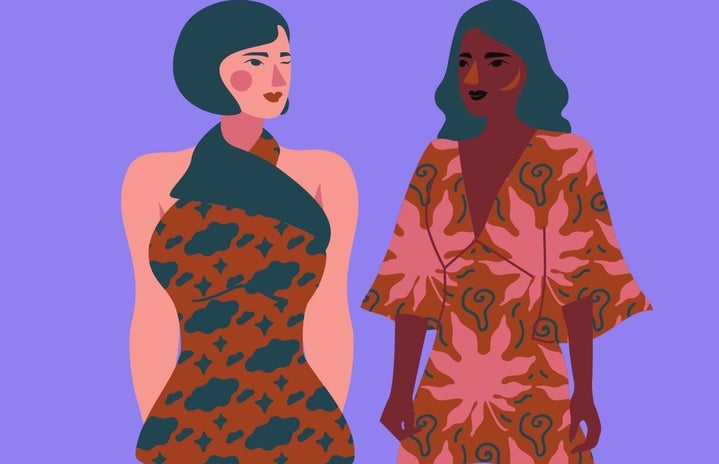After over a year of waiting, on June 19th, Netflix premiered the second season of Coisa Mais Linda. The series that was released in March of 2019 had its first season with seven episodes published and, now, the second season has only six episodes.
The plot takes place in the 1960s in Rio de Janeiro and tells the story of four women who deal with totally different realities but have one thing in common: sexism wide open in Brazilian society at the time. Since the first season, the plot approaches extremely important social issues, mainly to understand the reality of Brazilian women and, even more so, of black women. Despite the long period of time between 1960 and 2020, some situations shown are still happening today, which leads us to conclude that sexism and racism are interconnected and completely rooted in our society.


Sisterhood gains more emphasis
The glow that each character gains in this new season directly influences the relationship between them. That happens because, despite experiencing sexism as a common reality at work and in life, as a mother and wife, each one deals with it in a different way, strengthening the union between the girls. With Adélia, sexism is accompanied by racism. In many situations, she is placed in an inferior position, mainly in the building of her new residence, where she was called “maid” and her daughter “bastard”, by a resident of the same place, just because she is a black woman. This is the reality of many women today, that even with the evolution of women’s rights and their position in society, black women face sexism accompanied by racism.
Throughout the series, the union between them brings strength to continue fighting for their rights, for their individual freedom and their right to choose, showing that the more women are united, the greater the chance of breaking the paradigms imposed by the extremely sexist society they live in. These situations are often demonstrated in this second season.
The importance of the subjects approached by the series
The script addresses controversial but extremely urgent issues such as sexism, racism, harassment, the devaluation of women, the daily struggle of being a woman in a sexist country, among other themes that, despite portraying in the 60s, still happen in many similar situations with many women.

But the four female protagonists are in the series to break several taboos that, at the time, were considered an affront to social customs and rules. What shows us today is that thanks to these women and the emancipation of social movements in favor of equal rights between genders, the place of speech and the presence of women in society is increasingly expanding, attributing to them their own individual freedom and the right to choose which path they want to follow for a lifetime, without a man’s permission or submission.
Structural racism in the lives of black women;

In many scenes, both the characters of Pathy DeJesus and Larissa Nunes are placed in an inferior position or go through embarrassing situations by white people who, at all times, are keen to put them in their “proper place”. Adélia was called many times as a maid or nanny, either on the beach or in the building she is living in. People who use extremely racist lines insist on humiliating the character, saying that “that place was not for people like her”. Ivone, who is even more interested in the world of music and evolving her vocal power, faces the difficulties of racism that places her as inferior in several situations and unable to achieve a prominent position within music, something that, at the time, was aimed to white people.
Few episodes loaded with learning
The new season featured only six episodes, less than the first, that featured seven chapters. The viewers argued a lot about this topic, given the long gap between the release of the series and the new season, they speculated that the production would elaborate more episodes than in the first season, further developing into the final destination of the four female protagonists.
That leads us to question: Will Coisa Mais Linda continue? What will happen to the characters? Well, it’s not yet possible to answer these questions. It’s believed that with the way the second season ends and the reception of the public with the show, it’s very likely to be renewed. Netflix has not confirmed a possible third season and continuation yet, so it remains to be seen whether this will actually happen.
The Coisa Mais Linda show is available to all Netflix subscribers. It’s very worthwhile to enjoy each episode that brings us a lot of learning and understanding of the reality of all Brazilian women and their struggle for more rights, equality, active voice, place of speech and freedom of choice.
——————————————————————
The article above was edited by Thays Avila
Liked this type of content? Check Her Campus Casper Libero home page for more!



